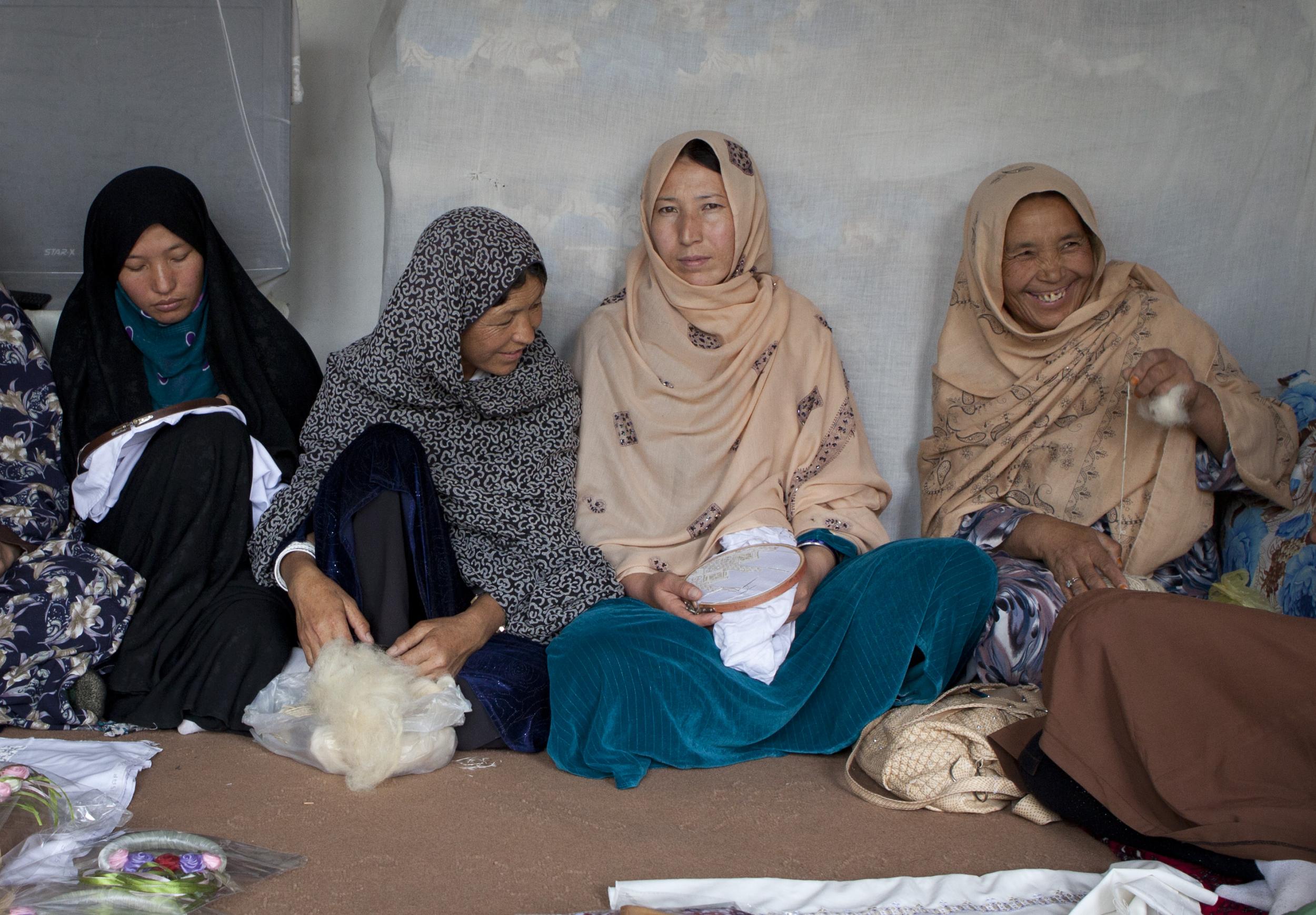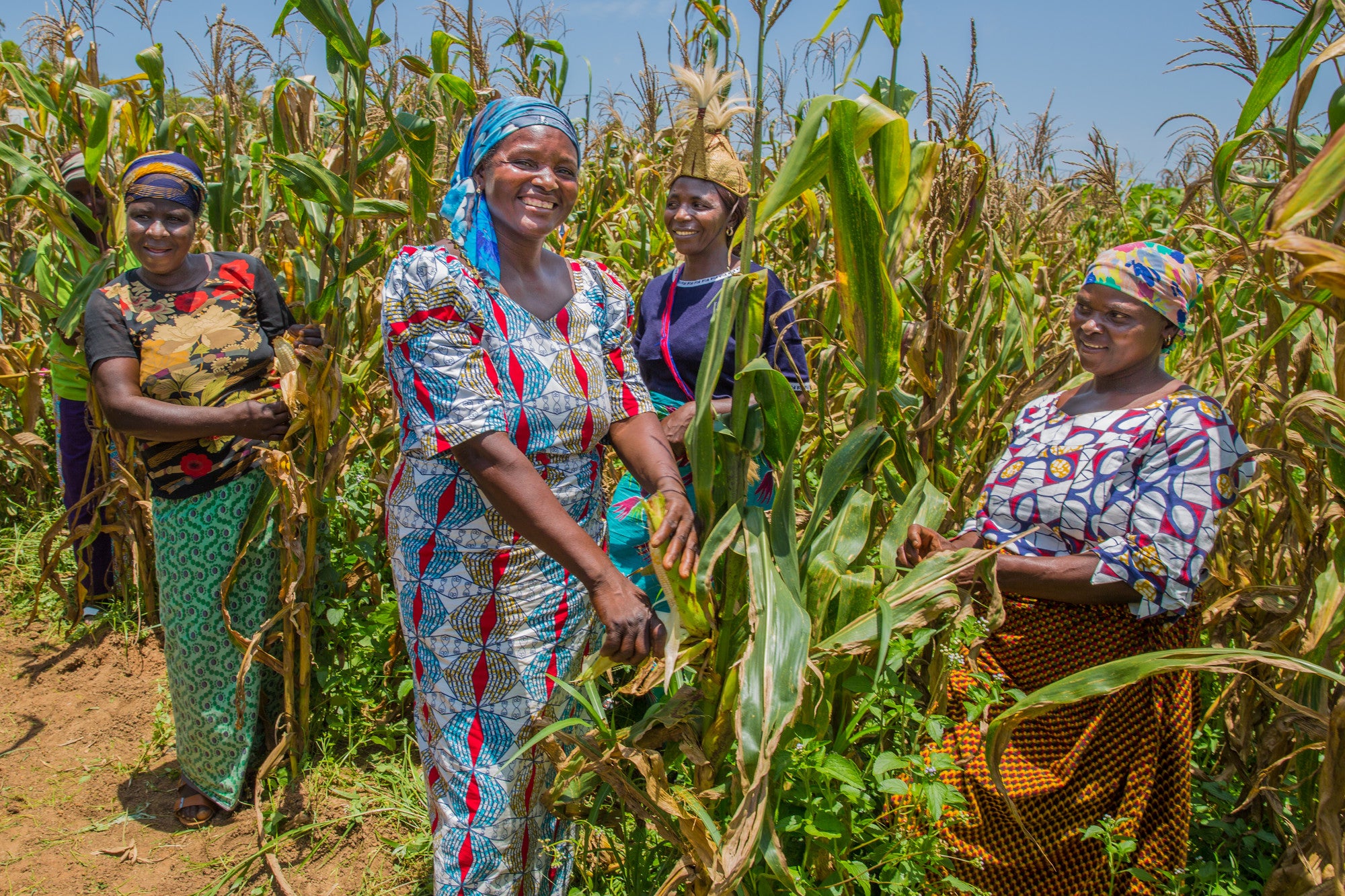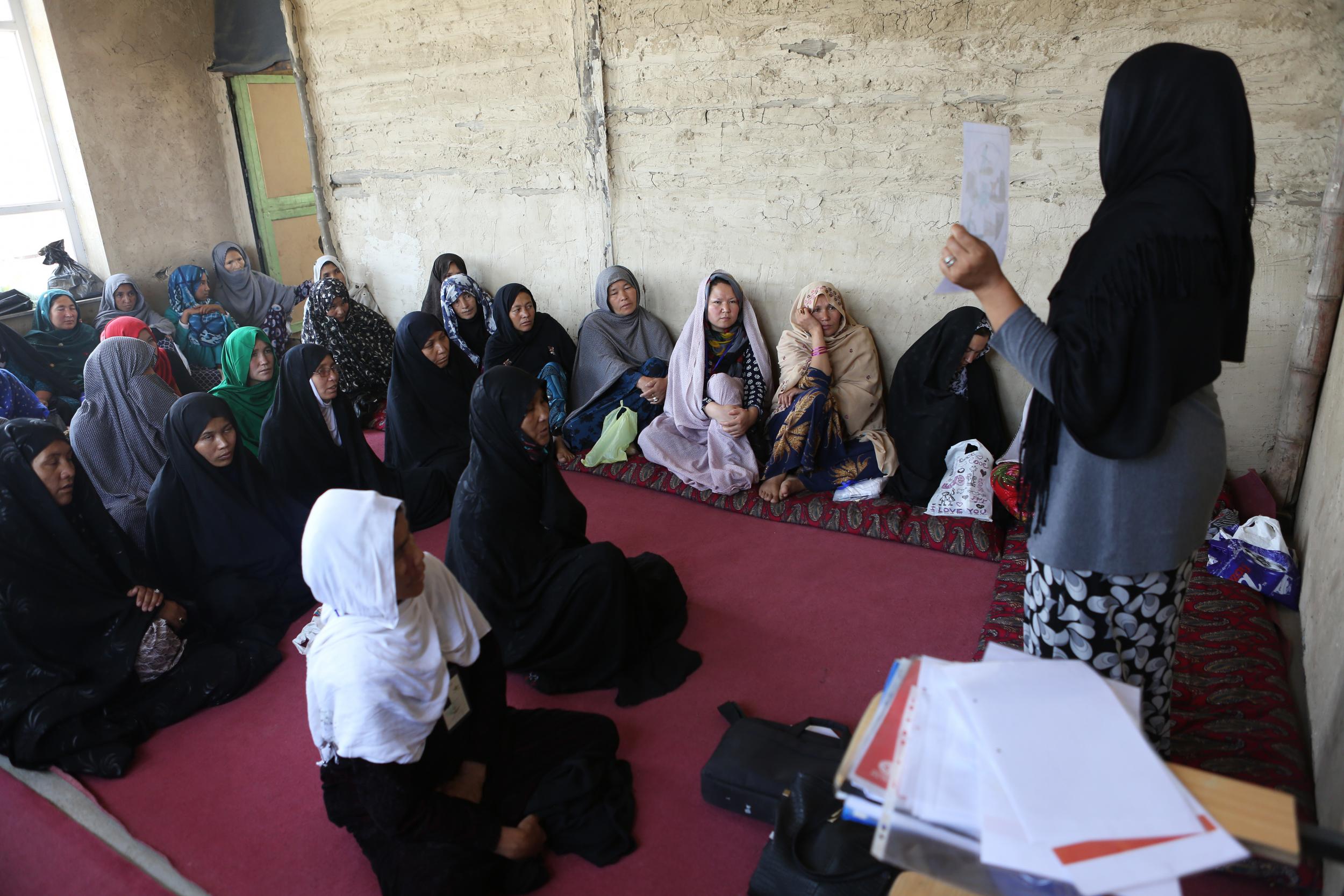‘#MeToo has not gone far enough’: Survey finds movement virtually unheard of by women in developing countries
Exclusive: ‘We are trying to show it is so much worse than we can even imagine if we take a worldwide view,’ says campaigner

Your support helps us to tell the story
From reproductive rights to climate change to Big Tech, The Independent is on the ground when the story is developing. Whether it's investigating the financials of Elon Musk's pro-Trump PAC or producing our latest documentary, 'The A Word', which shines a light on the American women fighting for reproductive rights, we know how important it is to parse out the facts from the messaging.
At such a critical moment in US history, we need reporters on the ground. Your donation allows us to keep sending journalists to speak to both sides of the story.
The Independent is trusted by Americans across the entire political spectrum. And unlike many other quality news outlets, we choose not to lock Americans out of our reporting and analysis with paywalls. We believe quality journalism should be available to everyone, paid for by those who can afford it.
Your support makes all the difference.A survey of thousands of women in Afghanistan and Nigeria found that not one of them had heard of the #MeToo movement against sexual harassment and assault.
Women for Women International, a humanitarian organisation which supports marginalised women, asked 8,500 women across both countries if they had heard of the movement, but none of them had.
Campaigners, who released the research to coincide with International Women’s Day, argued there were millions of women living in some of the most dangerous places in the world who had felt no tangible improvement to their lives due to #MeToo.
One in three women worldwide will experience physical or sexual violence at some point in her lifetime, mostly by an intimate partner, according to the World Health Organisation.
The #MeToo movement – the most visible and widespread feminist movement of recent times – exploded in late 2017 after a series of sexual assault allegations were made against men in Hollywood and a slew of other industries. Millions of women around the world shared their own stories of rape, assault and harassment.
Brita Fernandez Schmidt, executive director of Women for Women International-UK, said the study’s findings showed the profound disconnect between the #MeToo movement and women living in developing countries.
“We are trying to show it is so much worse than we can even imagine if we take a worldwide view,” she said. “If anyone says #MeToo has gone too far, I would say it has not gone far enough.
“It could be argued violence against women is one of the biggest epidemics in the world. It has an impact on the whole of society and also affects children who witness the violence and men themselves.”
Ms Schmidt, who has worked for the organisation for a decade, said rape was used as a weapon of war to systematically erode communities, with men often forced to watch their wives and daughters being raped.
“The root cause of violence is the same no matter where you go in the whole world,” she said. “The cause is the fact we are living in a society that has created a stereotype of men and women where women are the property of men. It means that men think they can treat women however they wish.”

She argued that it was imperative to acknowledge the shame, blame and stigma that stopped women from speaking out about the sexual violence they experienced at the hands of men.
Ms Schmidt said the prosecution rate for sexual assault against women in both Nigeria and Afghanistan was non-existent.
“Often when women who are raped go back to their families, they are sent away because they are seen to be tainted,” she said. ”The fear of stigma stops them from speaking out. They know it means they will be shunned and they will lose all their social networks. It will be them who gets all the shame instead of the perpetrator.
“Also after conflict, there is a surge in domestic violence. The violence continues because you have not addressed the trauma that both the men and women have experienced due to the war.”
She said she was not surprised by the findings of the study as she worked with women in those communities and they did not have access to the internet via smartphones to learn about the movement.
Research demonstrates that while women affected by poverty and conflict are disproportionately vulnerable to violence in all its forms, they are simultaneously least likely to be literate and have access to online devices.
Women for Women International, which notes that there are currently at least 40 brutal armed conflicts across the globe, argues the world’s attention moves on after conflicts come to a halt but women are left to carry the burden and rebuild their families and communities.
Bukola Onyishi, director of the organisation’s Nigeria branch, said: “The women I meet in rural Nigeria need to hear the message of the #MeToo movement – that they are not alone, and above all that it is the perpetrators of sexual violence, not the survivors, who should feel shame and fear.
“We must also change the perceptions in the wider community, and in the families of women who experience sexual violence, to ensure that the culture of silence around this issue can be broken.”
The UN estimates that of all women who were the victims of homicide in 2017 (87,000), 58 per cent of them were killed by intimate partners or family members – meaning that 137 women across the world are killed by a member of their own family every day and that this number is on the rise.
The women surveyed in the study are largely marginalised and socially excluded women who are survivors of conflict. The majority of respondents are between the ages of 18-40 years, married with at least three children, with average daily earnings of less than US$1 (76p).
Out of 3,396 women in nine districts of Nigeria, not one had heard of the #MeToo Movement, while zero out of 5,099 women in nine districts of four provinces of Afghanistan had not heard of it either.
Frozan Pardis, the social empowerment manager for Women for Women International in Afghanistan, said: “People here do not know about this movement. Even my colleagues do not know about it. There are many reasons they do not know – one is poverty – they do not have a smartphone or any phones.”
Ms Pardis, who has worked with the organisation for five years, said some of those women were denied the opportunity to access social media.
“I have a huge understanding of the community,” she said. “I have many meetings with them so for me, this study is not surprising. Many women also do not know about IWD on 8 March. They do not know there is a day for us women.”
The campaigner, who was born in Kabul, said the country had many problems with harassment and women were afraid to tell the police or organisations about the sexual assault or domestic violence they had experienced.
“We have many problems with harassment,” she said. ”There is a bad culture among men. Women never go to the police. Women face a problem with the rule of law in some places because they are afraid of warlords.”

Ms Pardis works with women on the ground and talks to them about their rights both legally and in accordance to religious teachings – teaching them to value themselves and become more independent and self-reliant. The men’s engagement training programmes she holds use the Koran to explain how women’s rights are grounded in Islam.
Decades of violence in Afghanistan have resulted in millions of women and girls being displaced or widowed. Common discriminatory practices, augmented by extremist groups, often lead to it being dangerous for women to seek healthcare services, education, employment – or, in some cases, simply leave the home.
Join our commenting forum
Join thought-provoking conversations, follow other Independent readers and see their replies
Comments